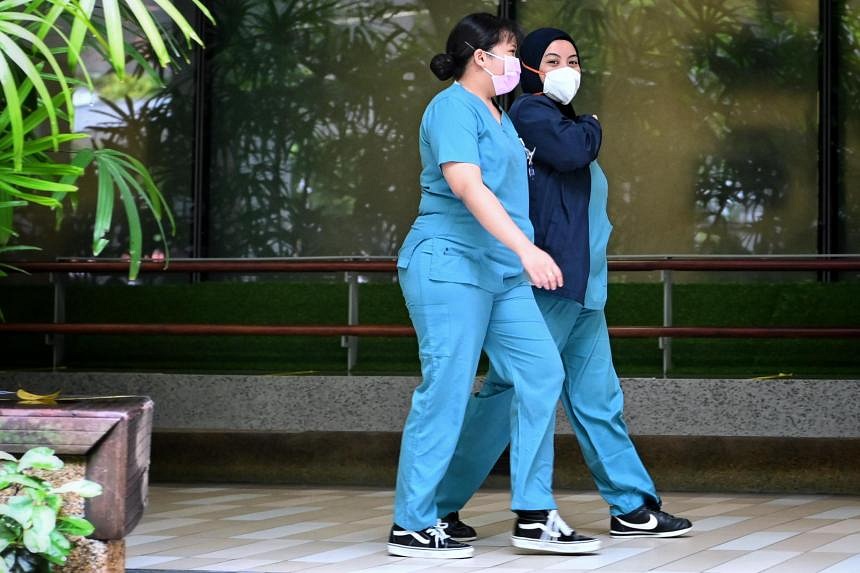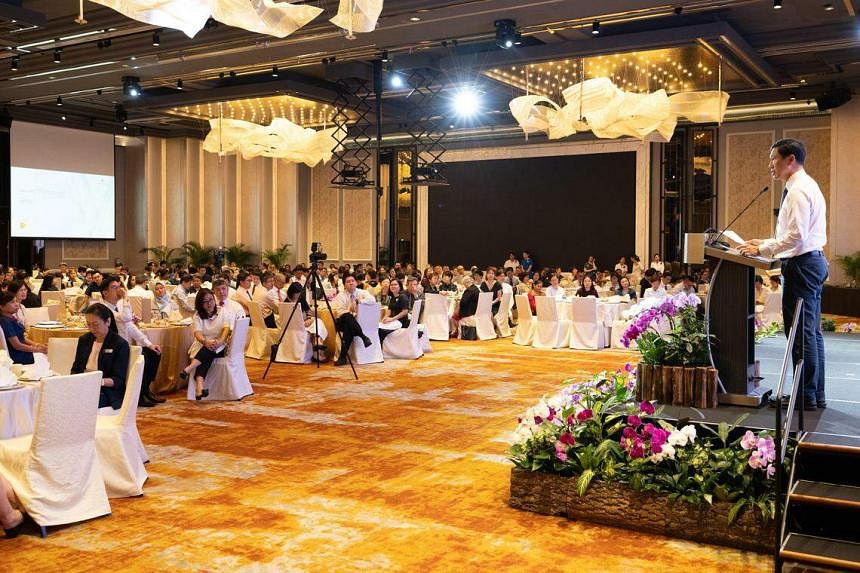from straitstimes.com:
Healthier SG care plans will be more personalised over time with use of apps: Ong Ye Kung
The plans will be tailored to individuals as they use apps such as Healthy 365 or LumiHealth to track their health goals. ST PHOTO: GAVIN FOO
Joyce Teo
Senior Health Correspondent
UPDATED
13 JUL 2023, 5:18 PM SGT
FacebookTwitter
SINGAPORE – The health plans that participants of
Healthier SG will get from their primary care physicians will become more and more personalised as they use apps to track their health, said Health Minister Ong Ye Kung, as he explained how the potential of precision public health is being harnessed here.
The initial versions of the personalised health plans under Singapore’s preventive care strategy are likely to be more generic, Mr Ong said. But over time, this will change as individuals use apps such as Healthy 365 or LumiHealth to track their health goals and nudge them to stay on top of their plans.
“When you see the doctor again, the doctor will look at what the health app says and further personalise your health plan. So there will be an iterative process.”
https://eb2.3lift.com/pass?tl_click...759460&ts=1689941703&bcud=1816&ss=12&cb=45825
Mr Ong made the comments on Thursday in his opening address at the third edition of the Precision Public Health Asia Conference, which is being held at the Centre for Healthcare Innovation.
Precision public health, an emerging field, refers to the use of data, analytics and other technologies at the population level to improve how interventions are tailored in order to prevent diseases, improve health, and reduce health disparities.
“The convergence of digitalisation, big data, wearables and AI (artificial intelligence) is that we can collect and analyse data, and influence population behaviour much more than before,” Mr Ong said.
On the other extreme end of the healthcare spectrum is precision medicine, which focuses on personalised clinical approaches – no different from how Instagram or TikTok tracks your consumption behaviour on social media and feeds you the right videos and advertisements, he noted.
The starting point for this is that people possess unique genotypic characteristics, and may respond to external health factors, medication and treatment differently, he said.
“Public health and precision medicine continue to be at the opposite ends of the healthcare spectrum – one dealing with large numbers imprecisely, the other about customised treatment of one individual. But both ends are now brought together by digital technology,” said Mr Ong.
In December 2022, Mr Ong
launched the SG100K research programme, which will sequence and analyse the whole genomes of 100,000 Singaporeans across different backgrounds and ethnicities over three years.
The findings of SG100K will pave the way for better prediction and prevention of chronic diseases and the provision of effective healthcare, he said.
Healthier SG can be a “powerful receptacle” for the adoption of innovation in healthcare, as the clinical processes, IT systems and funding mechanisms, for instance, are already in place.
On Saturday, Mr Ong said that
about 67,000 people have signed up for Healthier SG. It was formally launched on July 5 for those aged 60 and above, though the pre-enrolment exercise for those aged 40 and above who have existing chronic illnesses had started in May.
The two-day conference, which ends on Friday, is co-organised by the National University of Singapore Saw Swee Hock School of Public Health and the Precision Public Health Asia Society, the founding of which was announced at the second edition of the conference in April 2021.
More than 500 delegates from Asean and beyond have signed up for the event, including policymakers, health sector leaders, industry experts, clinical researchers and academics.



































































